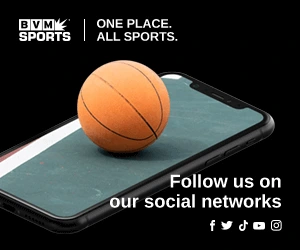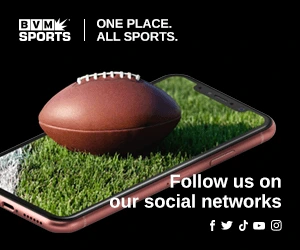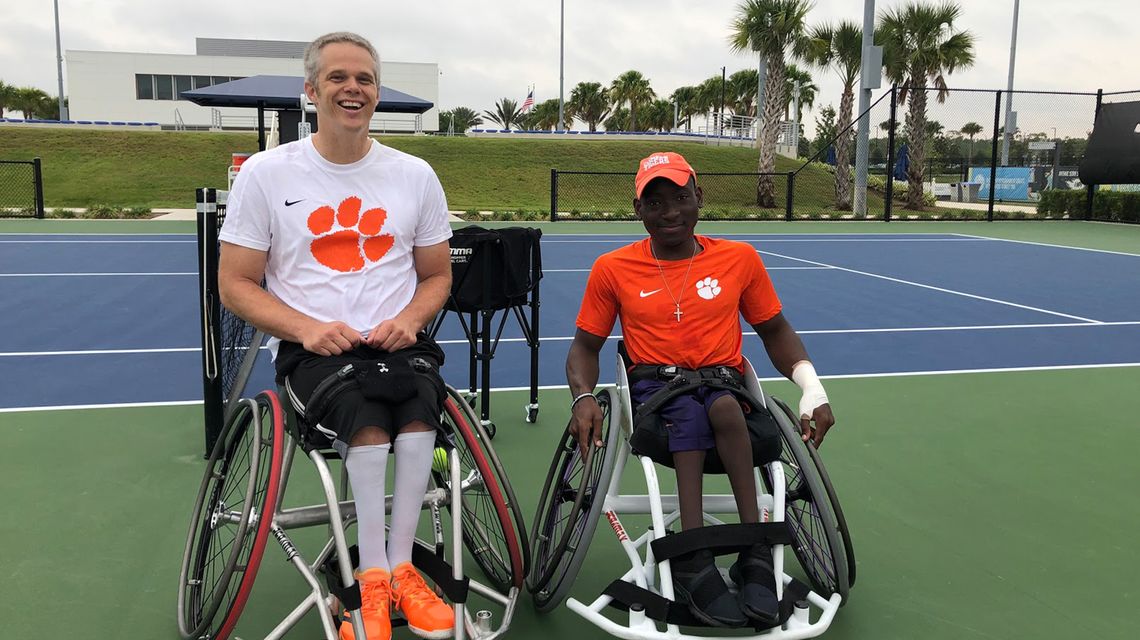
Tennis on wheels providing opportunity on Clemson’s campus
CLEMSON, S.C. (BVM) — There’s only six schools across the country that offer wheelchair tennis. The University of Alabama, Michigan State University, University of Houston, University of Arizona, San Diego State University and the newest: Clemson University.
Thanks to Dr. Jasmine Townsend and her husband, Jeffrey, both university professors, Clemson now offers the adaptive varsity sport. It was just a matter of time before the Townsends developed an adaptive sports program, as it’s been something they’ve planned on doing since they met.
Their journey started in Park City, Utah, where they both worked for the National Ability Center, an organization dedicated to providing recreational activities for people with disabilities. For Jasmine, that’s her passion. For Jeffrey, that’s his life.
Jeffrey suffers from spina bifida, a birth defect where the spine and spinal cord don’t form properly. But that’s never stopped him from being an extraordinary athlete. He played for the wheelchair basketball team at the University of Illinois and then went on to play professionally.
When he met Jasmine, he was able to give her knowledge on the collegiate side of adaptive sports, and that’s where their dream got its start.
“I’ve always had in the back of my mind no matter where I ended up, I wanted to develop a program,” Jasmine said. “Since him and I have the background, training and experience to do it, we figured we’d kind of be a good team to do it.”
Their first step towards making that dream reality actually came in the form of college curriculum. Jasmine put together an adaptive sports and recreation class, and was able to purchase 12 sports wheelchairs to use in her classes. Suddenly, for the first time, the university had adaptive sports equipment.
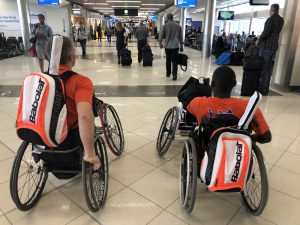
But they still didn’t know which sport they should introduce, who should coach it, and where they’d practice.
“We reached out to colleagues at Alabama who have arguably one of strongest adaptive sports programs in the country. They have their own $10 million adaptive sports facility, their own athletic director, a couple different teams,” Jasmine said. “They gave us a tour, we met with their athletic director and the information that was most valuable he gave us was don’t wait until you have a ton of athletes to start. Start with what you got.”
Little did they know that they’d run into someone who would make their decision easy. Chuck McCuen, director of operations for Clemson’s tennis program, approached them saying he’d be honored to help them out in some way. His resume spoke volumes: 19 years as tennis director at Georgia State University and 16 years within the Clemson tennis program.
Now they had equipment and a coach, and just needed a place to practice. McCuen pushed the athletic department, asking them to allow the wheelchair tennis team to the tennis facility for practice. That wish was granted.
The team completed their inaugural season this past April, with just a two-man roster. Jeff Townsend was one of them, and the other was then-senior Marsden Miller, who also suffers from spina bifida. In the infancy of their program, having a two-man roster was something that had a unique, yet beneficial dynamic.
“We are able to provide a lot of one-on-one attention to our athletes,” Jasmine said. “Then the two players kind of functioned like a mentor-mentee, where our more advanced player was mentoring our less advanced player.”
The team has more potential prospects for this next coming season, and hopes that student-athletes can choose Clemson, knowing they’ll have a place to belong in the community. On top of the varsity tennis team, Jasmine has been developing recreational adaptive sports opportunities as well. So whether you play a varsity sport or not, you’ll have the chance to play the games you love.
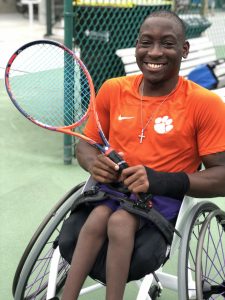
“Going to campus isn’t about sitting in a classroom; of course that’s a vast majority but you live on this campus. If there is nothing outside of the classroom, it makes it hard to feel a part of the community and like you are wanted,” Jasmine said. “If we provide opportunities to some students we should provide to all students.”
Jasmine says as a researcher, she can cite all day the benefits of playing recreational sports. They include things like retention rates, the ability to persist through graduation, plus long-term impact of employability and the ability to earn an income. She says at the most basic level, people with disabilities deserve recreational experiences as well.
“It’s important because we are human beings and should be treating each other equitably.” Jasmine said.
As the diversity and inclusion at Clemson continues to grow, so will the wheelchair tennis team. They are hoping to be able to host their own collegiate tournament in the near future.


